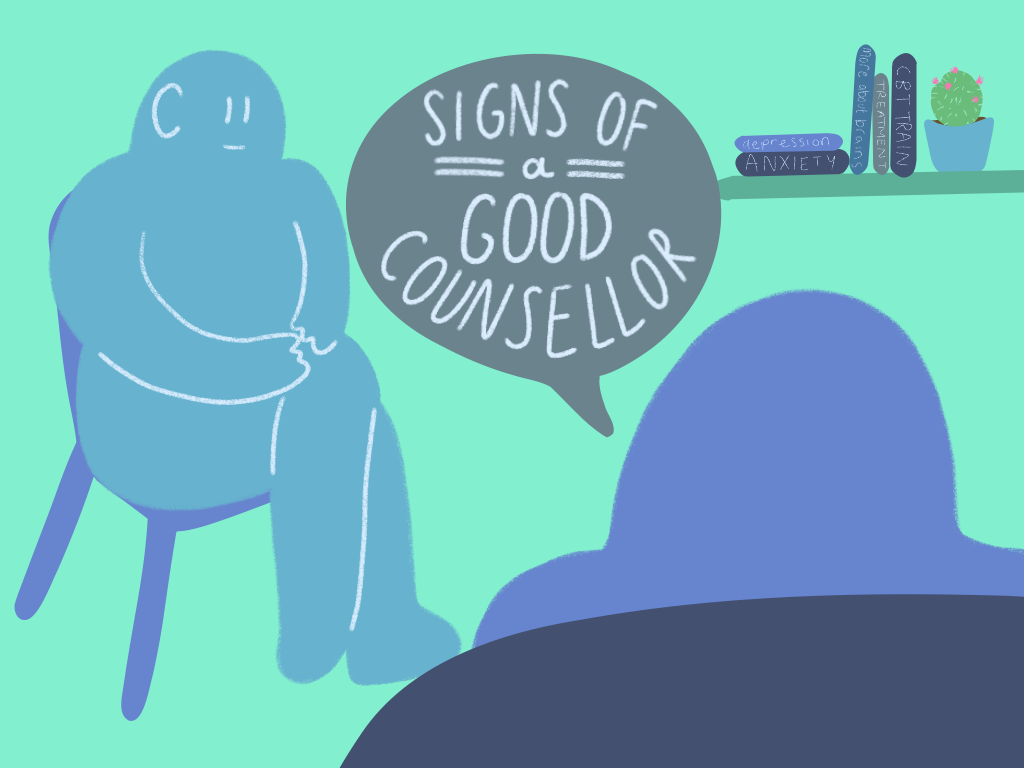Signs of a Good Counsellor

1. They actually listen to you.
Listening has to be the easiest part of a therapist’s job, right? Not quite. Listening is a multifaceted skill that involves much more than merely waiting passively while someone else speaks.
A good therapist signals that they’re not only taking in your words, but also understanding them.
Feeling like your therapist is distracted when you speak — by the time on the clock, their grocery list, or something else — is a sign that maybe it’s time to see someone new.
2. You feel validated.
Your therapist should validate your thoughts, emotions, actions, and experiences. This doesn’t mean they agree with everything you say or do. In fact, there’s an important difference between validation and approval.
Validation is about acknowledgement and acceptance. A therapist who makes you feel validated acknowledges what you tell them as the truth of your experience.
Approval — along with its opposite, disapproval — is a value judgement. A good therapist tries to avoid making value judgements about what you think, say, or do.
3. They want what’s best for you.
A good therapist is there to offer resources and recommendations while also respecting your agency. You should never feel like your therapist is forcing you to do something you don’t want to do.
This includes choices you make about your own treatment, such as seeing another type of professional or putting therapy on pause for a few weeks. A professional therapist will accept your decision, even when it might not serve them personally.
4. They’re a strong communicator.
Strong communicators listen more than they speak. But while listening is a significant part of a therapist’s job, it shouldn’t come at the expense of speaking skills.
A therapist is also an educator, and as such, they should be able to distill concepts and explain symptoms in a way that you’re able to understand. Although most therapists have undergone years of schooling, their language should be accessible as opposed to scientific.
What’s more, a good therapist will ask you questions to ensure you’ve understood and take the time to rephrase their explanation if you haven’t.
5. They check in with you.
Navigating the therapist-client relationship might be new to you. You might find it uncomfortable broaching certain subjects with your therapist, such as feeling unsatisfied with how your treatment is progressing.
As a trained professional, your therapist should be more comfortable instigating these check-ins. They should take the time to regularly ask you how you think your treatment is going and adapt accordingly.
6. They challenge you — respectfully.
Different styles of therapy opt for different tactics to spur personal growth. Psychoanalysis involves examining the unconscious, while humanism provides the emotional support for you to develop as an individual.
Some styles of therapy involve questioning irrational thinking patterns. This should be done respectfully, without making you feel bad for ways of thinking that might not be serving you.
If your therapist ever makes you feel stupid, damaged, or guilty, it’s time to reconsider the relationship.
Here are more resources showing green flags for therapists:













